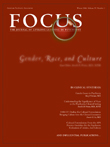As a general psychiatrist I see some patients who are in late adolescence. An 18-year-old female college freshman has requested an evaluation for ADHD because of poor academic performance. How should I proceed?
Response from Arden Dingle, M.D., Associate Professor, Department of Psychiatry and Behavioral Sciences, Emory University School of Medicine, Atlanta:
Attention deficit hyperactivity disorder (ADHD) is characterized by a persistent and pervasive pattern of inattention or hyperactivity-impulsivity, with symptoms that are more frequent and severe than typically seen in individuals at an equivalent developmental stage. For a diagnosis of ADHD, individuals must have six or more symptoms of inattention or hyperactivity-impulsivity. Other key features include the presence of some symptoms before age 7, the occurrence of symptoms in at least two settings, and impairment in academic, occupational, or social functioning. Also, the symptoms cannot be better explained by another psychiatric diagnosis. DSM-IV-TR allows coding by type: combined, predominantly inattentive, and predominantly hyperactive-impulsive.
Although ADHD is widely considered a disorder of children, there is increasing recognition and agreement that it can persist into adulthood and that in many affected individuals the disorder is not recognized until adolescence or adulthood. Generally, as individuals with ADHD age, they tend to be less overactive and their deficits tend to be in attention, impulsivity, and organization. In children, significantly more males are diagnosed as having ADHD. In adults, there is evidence that the gender distribution is more equal and that girls may not be diagnosed in childhood because they tend to have the inattentive type, whereas boys usually have the combined form. For adolescents, the diagnosis is often made after a decline in academic performance.
ADHD is diagnosed by clinical interview. It is essential to explore information on the key features of ADHD, current functioning, and childhood history as well as family history. History obtained from parents and report cards can give clues about possible attention difficulties. In cases like this one, in which the presenting problem is poor academic performance, it often is useful to obtain as much information as possible about the demands of school, the patient’s study habits and strategies, and what areas seem problematic (e.g., organization, completing tasks, listening in class, and so on). Inquiring specifically about how the patient approaches learning the material and accomplishing the required tasks will yield more informative responses than asking the patient general questions about her ability to pay attention. Asking about previous school situations—say, high school—can be helpful in determining why the patient now is having problems (e.g., it may be because the course work is more demanding or because college provides less structure) and when the problems first seem to have become evident.
Other critical components of the interview include obtaining information on the patient’s lifestyle and usual activities, with particular emphasis on use of drugs and alcohol and time spent socializing as well as eating and sleeping habits. It is vital to screen for other psychiatric or medical disorders. ADHD can be comorbid with a number of other psychiatric disorders, such as mood, anxiety, learning, conduct, and substance use disorders. Many individuals who present with attention problems actually have other disorders. For this patient’s age group, it is important to rule out substance use, anxiety, mood, or psychotic disorders as the primary problem.
Psychological testing and rating scales can provide essential information, but they should not be used in place of an interview. Testing can be useful in determining the presence and severity of any learning disorders and can provide information on the individual’s problem-solving strategies and organization as well. Rating scales can provide helpful adjunct information. Several scales have been designed for use with adults. Ideally, information is obtained from as many people as possible. Although obtaining information from outside sources is challenging, especially when the patient is a college student, it can be very helpful to talk to and get rating scales back from parents, siblings, peers, and teachers. Roommates and friends can add valuable information about the patient and her ability to pay attention and organize her daily life.
Medication and psychosocial treatment approaches are available for ADHD. A number of stimulants and some nonstimulants have been shown to help with attention. Psychotherapy may be employed to help patients develop more effective coping or social skills as well as to help with the demoralization and self-esteem issues that often affect patients, particularly those whose diagnosis is made in adulthood. Tutoring to help with study skills, time management, and organization can also be of benefit.

